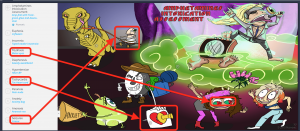
Get in the Right Frame of Mind for the NCLEX Exam®
- So, how does the NCLEX® work
- How many questions are on the NCLEX?
- How hard is the NCLEX?
- How should I study for the NCLEX?
- How is NCLEX Scoring done?
- What are some tips for passing the NCLEX?
Off in the near distant future, your fate awaits. No, it’s not in a galaxy far, far away (maybe), but in your local testing center. Here, you will come face to face with the National Council Licensure Examination, AKA “the NCLEX.” So, what would you like to know before you wield your lightsaber of knowledge and send this beast to the annals of ancient history (at least for you)? Well, fair Knight, let us journey far and wide to plan your campaign! (I swear I’ll let off the fantasy references if you continue reading).
Questions burning as much as the Escherichia coli colonized urinary tract in the one patient you had last Thursday. Or was it Monday? Much like your acute recollection of Ms. Donovan, understanding how the NCLEX® works is hazy and unclear. BUT! Here are some cold, hard facts about the NCLEX, brought to you by your friends at Pearson Vue and the National Council of State Boards of Nursing (NCSBN) (the bodies in charge of your entire NCLEX experience):
- The NCSBN develops and administers two nurse licensure examinations (the NCLEX Practical Nurse [PN] and Registered Nurse [RN]). A key concept to understanding the NCLEX is that it determines the entry-level nursing competency of candidates for licensure as PNs/RN. Use this fact to decrease your worry, as those able to pass nursing school on the first (or second) try are in a prime position to pass this test.
- The NCLEX is computer-based, and even includes an on-screen calculator for use during the exam (neato!). It also administers questions based on Computerized Adaptive Testing (CAT) technology, but more on this later. Beginning October 1, 2020, both the PN and RN versions of the NCLEX contain a minimum of 75 items and a maximum of 145 items. In the past, the number of minimum items for the NCLEX-PN was 85, and the maximum for both NCLEX versions was 265 items. A couple of other changes since October 1, 2020:
- The total test time for the PN and RN exam is five hours.
- A candidate can still pass the test, even if they run out of time. The final ability estimate is computed from all completed responses on the exam, and so long it is above the standard, the candidate will pass.
- Every three years, the NCSBN conducts practice analysis of entry-level nurses. Questions on the exam can change based on trends in current practice, and the last test plan for the NCLEX-RN was in 2019. That means, you crazy cats taking the NCLEX in 2021, will have the same questions your peers from 2019 and 2020 had. The Test Plan from 2019 is broken down as such:
- Safe and Effective Care Environment
- Management of Care: 17-23% of Items on the Exam
- Safety and Infection Control: 9-15%
- Health Promotion and Maintenance: 6-12%
- Psychosocial Integrity: 6-12%
- Physiological Integrity:
- Basic Care and Comfort: 6-12%
- Pharmacological and Parenteral Therapies: 12-18%
- Reduction of Risk Potential: 9-15%
- Physiological Adaptation: 11-17%
- So, what does this even mean??? Well, glad you asked. Head on over to the next section to get “the nitty gritty.”
- Safe and Effective Care Environment
The Nitty Gritty
The Picmonic Team has your back! Before breaking down the enigma, please know Picmonic for RNs is a powerful tool to support your academic career and your plan to conquer the NCLEX. Picmonic saves you time, as the learning system is designed to incorporate cutting-edge memory science to assist you in maximizing retention. Mnemonics are a very effective tool for increasing retention and memory recall, and in a randomized, double-blind, and controlled study, Picmonic improved long-term memory retention by 331% and increased test scores by 50% among medical students when compared to traditional studying techniques (e.g. reading a textbook and lecture notes). Since this study, Picmonic has vastly improved its content library and explicitly developed content for nursing and advanced nursing students.
Also, Picmonic has a Pass the NCLEX Guarantee! If you don’t pass your NCLEX within one year of your Picmonic subscription expiration date, we’ll hook you up with a full refund or double the length of your access; for free.
Now you know this, so let’s dive into the 2019 NCLEX-RN Test Plan to better understand how you can prepare your own study plan!
Do you remember when I mentioned 17-23% of items on the NCLEX-RN were listed under “Management of Care”? If you don’t, then Picmonic is for you! (A little joke about your memory…LOL). NCSBN defines management of care as a nurse providing and directing nursing care to enhance the care delivery setting, protecting the client and health care personnel. An activity listed as management of care is prioritizing the delivery of client care, requiring the nurse to follow certain principles like Maslow’s Hierarchy of Needs or the rules of Triage.
A good strategy for planning your NCLEX study sessions is to focus efforts. When you take this approach, you determine what is most important for you to remember, study and retain. One example is when you feel less confident in a particular piece of information. In the example above, if you have trouble assessing patient priorities it may behoove you to focus some time on understanding Maslows or Triage.
Another strategy for focusing efforts is looking at the broad areas (e.g. “Management of Care”) and breaking them down into sections. As this topic associates with around 20% of the items, you will see on the NCLEX, your dedicated time and attention may be worth the effort (unless you know Management of Care like the back of your scrubs). Using resources like the 2019 NCLEX-RN Test Plan, NCLEX review manuals or NCLEX review handouts provides good frameworks to develop fruitful study sessions.
In summary, the strategy here is to see the forest through the trees. Taking a gigantic, broad concept like “Management of Care,” and breaking it into bite-sized, itty-bitty pieces leaves you with much more manageable concepts to understand and practice, like understanding and applying Maslow’s Hierarchy (which is a Picmonic Card, BTW).
An Important Note about NCLEX Questions: The majority of NCLEX items are application-based questions2. What this means is that the question calls upon you to recall information and apply your knowledge in a clinically-based scenario. Often, this differs from your nursing school experience, where instructors were observing your ability to recall specific facts, figures, and particular information. The NCLEX aims to hypothetically place you in your future role as an RN/PN, assessing your skill and knowledge base to care for patients and populations.
To show you what we mean, here is a question where critical thinking is the name of the game:
A 22-year-old woman is brought into the ER by her friends who told you she collapsed at a nightclub. They tell you she took some MDMA, and you suspect an amphetamine overdose. What symptoms would you expect to see? Select all that apply.
- Mydriasis
- Tachycardia
- Hypotension
- Seizures
- Hypothermia
(Find the answer at the bottom of this blog)
Plan to Practice

There is a great benefit in an organized study plan when preparing for the NCLEX. Just so you know, Picmonic offers a great one: the “4 Weeks to NCLEX Workbook and Study Planner”! With this study planner, you can work through 100 unforgettable mnemonic pictures, break down your study plan week-by-week (even day-by-day!), play one-of-a-kind review games, and gain access to additional tips and tricks for NCLEX preparation.
The key to any great study plan is balance. What can you do, with the amount of time you have, and the current obligations competing for your attention? There are superhumans out there who can plan down to the minute what, how, where, and when they will be studying a certain NCLEX topic. For the rest of us, we fly by the seat of our scrub pants.
So, for overachievers and urban achievers alike, creating a plan and having resources is very important to preparing. A recommended set of tools needed for NCLEX preparation includes:
- A Good Study Planner
- Nursing Textbooks and Notes
- A Comprehensive NCLEX Review Manual (our current favorite is Saunders Comprehensive Review for the NCLEX-RN Examination: 8th Ed. )
- Mobile Apps like Picmonic, Osmosis, or access to some technological and social media savvy nurses on Youtube (for use at your cousin’s Quinceañera)
- Caffeine and gummy bears
- Episodes of House, Grey’s Anatomy, Scrubs, or try the new Nurses
- A good study buddy
Okay… the last three are more optional, but strongly suggested. Also, be on the lookout for Picmonic’s Brand-spanking new “Critical Clinicals: 70 Cheat Sheets for Nursing School, NCLEX and New Grads.” A welcomed resource for nursing students and new graduates alike!
Practice Makes Progress
You bought your spiral notebooks, review manual, and gel pens, your apps are cued, your study schedule is written down (or built within Picmonic), jammies are on, the dog is walked and Meredith wants Derek to pick, choose and love her. What’s next? Repetition, my friend. This, and focusing on active forms of studying. Repetition meaning content and practice questions (this is where an NCLEX review manual or course comes in handy).
Active studying as in:
- Rewriting reviewed content into your own words
- Drawing concepts and algorithms (Osmosis definitely inspires this!)
- Augmenting traditional studying (e.g. texts and notes) with interactive and fun methods of studying (Hey! Did you hear about Picmonic?)
- Zoom session with fellow NCLEX preppers (preferably in a bunker somewhere in Wyoming). But seriously, teaching and discussing concepts with peers strengthen conceptual understanding and confidence.
Practice Questions: Set a Goal
When studying for the NCLEX, a good idea is to set a practice question goal for yourself to observe and answer a certain amount of questions before exam day. We recommend that you complete about 2,800 practice questions before your exam. If you are giving yourself a month to study, that means that you would be doing about 100 NCLEX practice questions per day. Schedule time in your study schedule to do these questions; an example would be to even divide the questions to do 50 questions in the morning and 50 questions in the afternoon. Make sure you account for the amount of time it takes to review questions that you are getting incorrect. (Pssst…our Picmonic Study Planner gives you an organized time breakdown day-by-day to do this!)
The NCLEX Exam Day
Preparation
Today’s the day (hypothetically… you are still reading this post, silly!). You’ve laid it all out, studying from weeks to months. In a very short period of time, you will “do the dance,” so how about an NCLEX test-day checklist?

What if I have NCLEX anxiety? We’d say, you are alive! Unless you have ice water running through your veins as parachuted into the testing center, then you will have a respectable amount of NCLEX anxiety. The good news is: you can prepare now to decrease and manage your test anxiety! First, if you know your test anxiety will be a significant challenge (based on your previous experiences with it), then making a plan to address this anxiety is very important! Well before the NCLEX, try these tips from the Learning Center at UNC-Chapel Hill:
- Weeks to Months Prior
- Rely on your study planner and schedule to study effectively, efficiently, and balanced. Don’t procrastinate on certain topics and push them off just before your test date. This could adversely affect your feelings of preparation and confidence.
- Add your self-care routine into your study plan! Ensure you live as a human, and not as a robot. Eat well, sleep well, think well and move!
- Days to Weeks Prior:
- Create a “Calming Worksheet”: A notecard or piece of paper with inspirational quotes, mantras, breathing, and calming techniques and/or pictures to inspire. This can be a “rescue” item you can bring to the testing center, and one of the last things you look at before entering the NCLEX testing area.
The Dance
The time before the test, whether it’s the night before or the morning of, is the most important time to care for yourself and keep your cool. Getting plenty of sleep, eating a nutritious meal prior to, and avoiding too much caffeine will focus your mind and keep the nervous energy at bay.
Once in front of the beast:
- Breathing deeply from your belly, focusing on your breath and body.
- By sitting comfortably with relaxed shoulders, proper posture, and being mindful of your body, you can work to improve your self-esteem, persistence, and creativity.
- Take a mental note, as this is a big moment for you. Maybe something you’ll want to remember for the rest of your life.
Most importantly, the outcome of the test does not relate to your value as a person or nurse. It is only a challenge, one of many you’ve had to overcome.
A grand piece of advice: During your NCLEX experience, DO NOT try to self-assess how you are doing prior to receiving a score!
DO:
- Focus on the question at hand
- Answer the question
- Repeat.
You won’t know how many questions you need to answer because you won’t confidently know what questions you got right or wrong. So, don’t consider this a good strategy to meet the minimum.
The Score
How is the NCLEX Graded? THE CAT!! As stated before, the NCLEX utilizes Computer Adaptive Technology for administration of items. Basically, it’s a smart algorithm determining a candidate’s ability compared to the passing standard. With every answer a candidate provides, the algorithm re-estimates the ability of the candidate, and with more questions, the computer becomes more sure of the candidate’s ability. The algorithm chooses each item to challenge the candidate and will select items for which the candidate has a 50% chance of answering correctly. Every item after this will provide the algorithm maximum information about the candidate’s ability in relation to the minimal standard.

Is the NCLEX hard? A resounding YES! But the level of difficulty is relative to each and every future nurse taking the NCLEX, so do not be deterred! Remember, if you go in prepared, the less of an uphill battle it will be.
Now if you recall, there are just two outcomes to your test: pass or fail. Either way, you will be done with the NCLEX (a feat in itself), so ensure you have a post-recovery plan involving some much-needed self-love and appreciation.
If You Failed? The Comeback

Memento mori. Was failing the NCLEX the end of your life? If you are reading this after the fact, then no, it was not. You are still here, and you are still capable of becoming a nurse. So, scream into the yawning abyss, cry until you reach an osmolar imbalance, drink (water LOL) until you are peeing on the hour, and then plan. Plan for another day, another week, another month. You’ve put in the time already, you came face-to-face with a challenge, and you threw your hat into the ring. Now is the time to put all doubt of success out of your mind. Remember, Picmonic has your back, with the Pass the NCLEX Guarantee! We mean it…you need to be in the nursing profession, and we want you to keep going until you are.
The End, it is not. Beginning, it is.
We wish you luck, friends. The NCLEX will be a blip on your radar when you look back at a fruitful nursing career. Just as we were there for your initiation into nursing school, Picmonic will be there for you later as well. Whether it be in the pursuit of an Advanced Practice Registered Nurse (or RN for all you PN Cats), Physician Assistant, or MD/DO degree, Picmonic serves all those preparing for the rigors of modern healthcare. See you on the frontlines!
P.S. – The correct answer to the question above is 1, 2, and 4.
Here’s why: Amphetamines are central nervous system stimulants. Characteristics of amphetamine intoxication may include mydriasis, tachycardia, and seizures. Hypotension and hypothermia would not be symptoms you’d expect to see with amphetamine overdose.
By simply recalling the Amphetamines Intoxication Assessment Picmonic, you could have easily gotten this SATA question correct!

NCLEX FAQs
How many practice questions should I take before the NCLEX?
A good rule of thumb is to break your study sessions into a couple of chunks per day – working through approximately 75 questions per session.
Is the NCLEX hard?
Although the NCLEX is considered a very difficult exam in nursing education, prepping for the exam properly can drastically reduce stress and highly increase the likelihood of passing the NCLEX your first time. The NCLEX is designed to test your critical thought process. The questions start out relatively easy and get progressively harder with each correct answer in order to determine your highest level of knowledge.
What score do you need to pass the NCLEX?
The test will produce a minimum of 75 questions, and a maximum of 265. A candidate passes the test when enough questions have been answered correctly to stay above the pass line with 95% confidence interval. The candidate will fail the test when they do not rise about the pass line with 95% confidence.
How is the NCLEX scored?
The NCLEX score is measured by how many questions you are able to answer correctly in correlation to its difficulty. This scoring is called a logit. Therefore, the harder the question answered correctly the higher the logit.
What percentage of questions do I have to get right to pass the NCLEX?
Because the NCLEX is geared to test your highest level of knowledge, you will need to answer 50% of the medium difficulty questions in the exam in order to pass.
References
- Pearson VUE. (2020). The NCLEX examination. Retrieved from http://www.pearsonvue.com/nclex/
- NCSBN. (2020). 2021 NCLEX examination candidate bulletin. Retrieved from https://www.ncsbn.org/NCLEX_Candidate_Bulletin_2021.pdf
- NCSBN. (2020). Computerized adaptive testing (CAT). Retrieved from https://www.ncsbn.org/1216.htm
- Picmonic. (2020). Why picmonic? Retrieved from https://www.picmonic.com/pillars/why-picmonic
- Picmonic. (2020). Research proven. Retrieved from https://www.picmonic.com/pillars/research-proven
- NCSBN. (2018). NCLEX-RN examination: Test plan for the national council licensure examination for registered nurses [Test plan]. Retrieved from https://www.ncsbn.org/2019_RN_TestPlan-English.pdf
- The Learning Center: University of North Carolina at Chapel Hill. (2020). Test Anxiety. Retrieved from https://learningcenter.unc.edu/tips-and-tools/tackling-test-anxiety/
Download our mobile app and take Picmonic on the go!
















